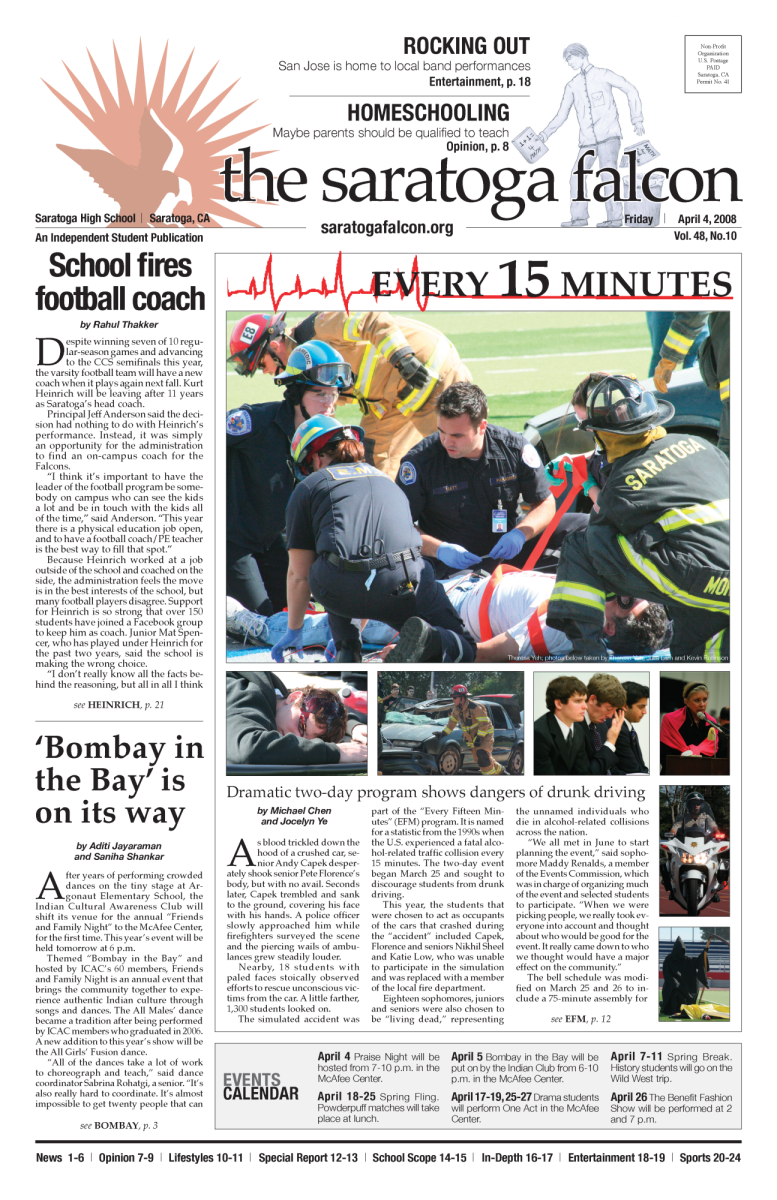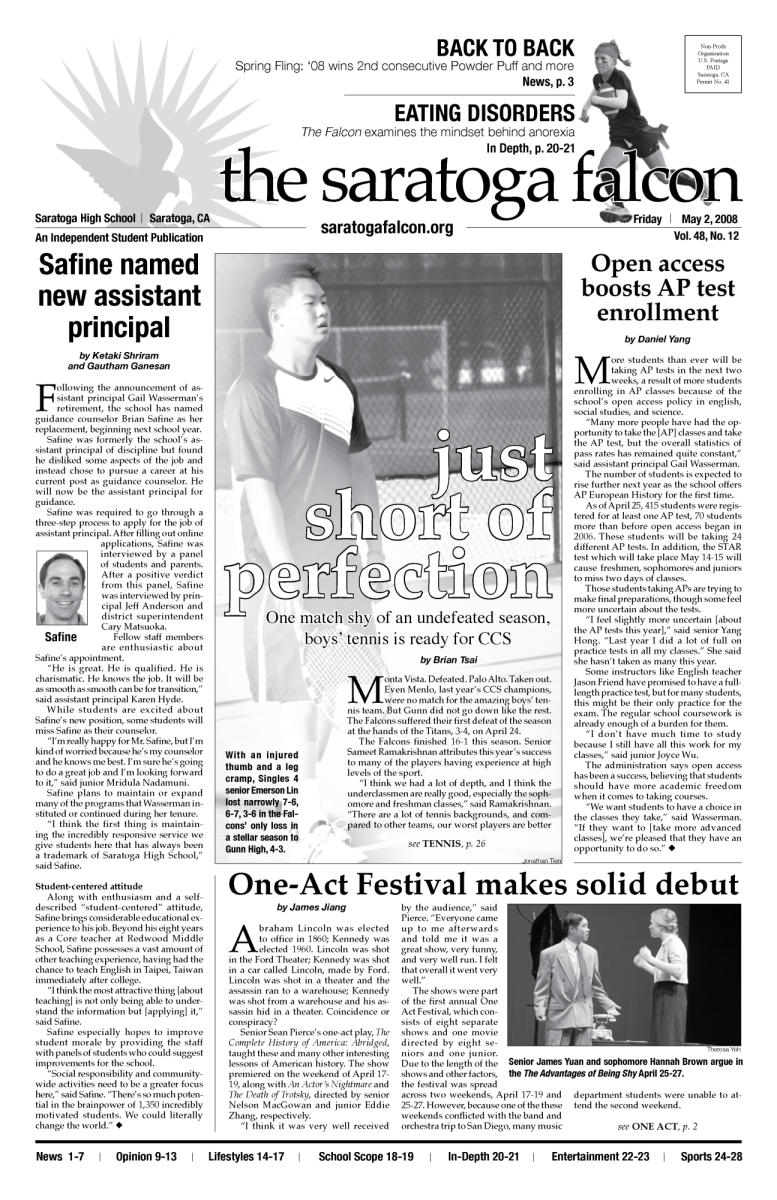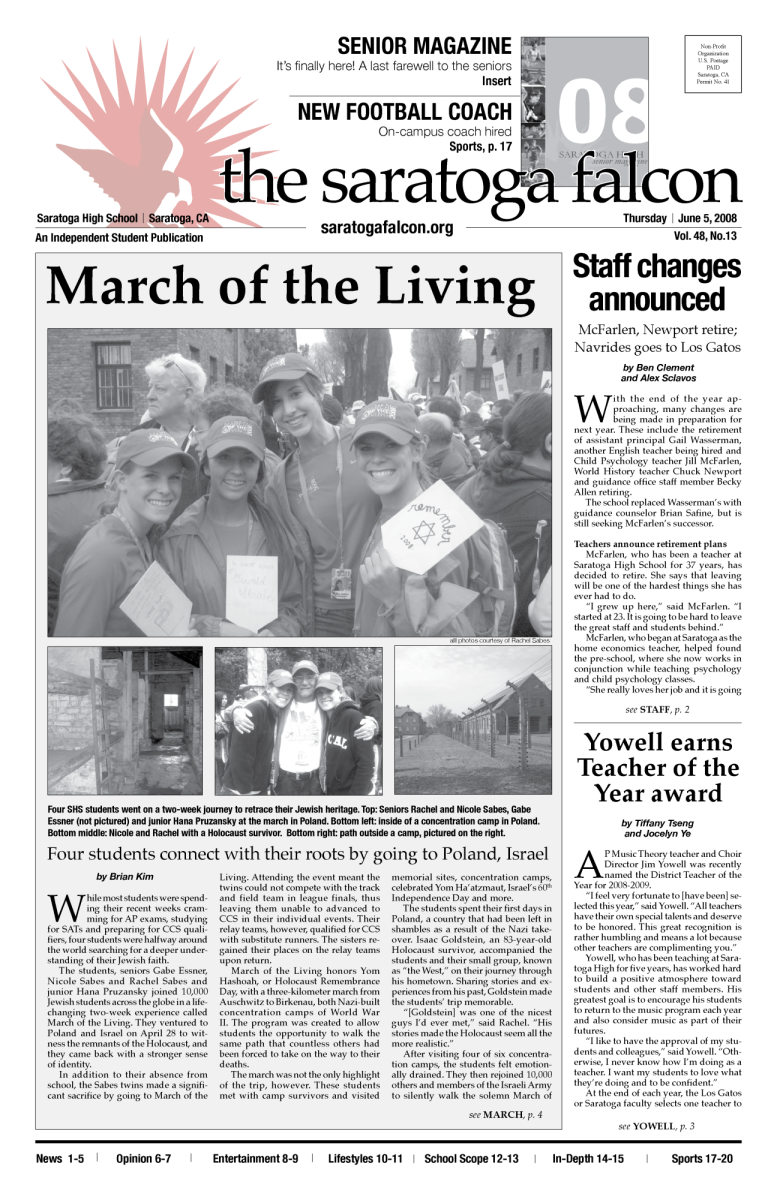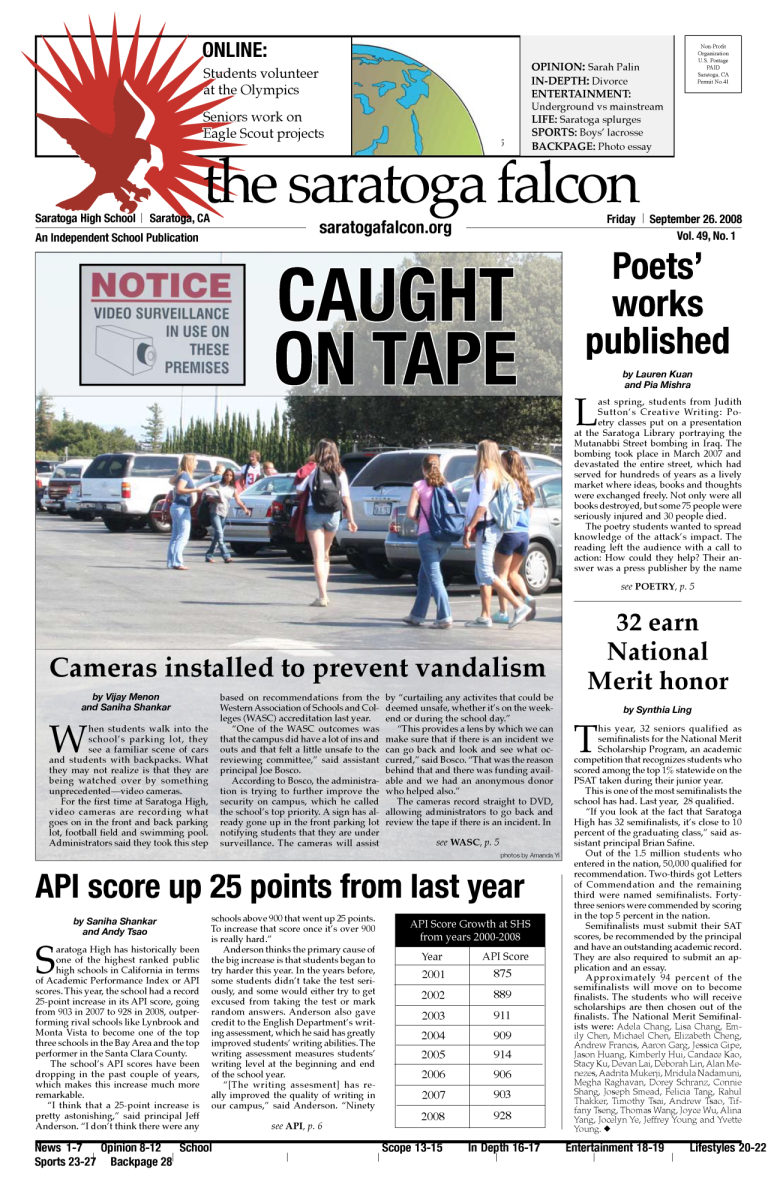Senior Taylor Zhou squinted as he and his Media Arts Program (MAP) group partners made edits to the scriptbook projected onto a large computer screen. For the past semester, Zhou and his four other Media Arts Program group mates have been crafting the script and storyline for their final senior capstone project: a short film.
He came up with the plot during a road trip last summer. Zhou was driving to Los Angeles to get footage for the final part of his college application film portfolio when he was struck by the idea of creating a time loop film.
“It’s about someone who has to use a time loop … to cope with a loss and learn how to move on,” said Zhou. “This one person has to go through the same scenario again and again. It’s interesting to explore how that affects the human psyche.”
Despite incorporating “futuristic” elements, Zhou said that the film, at its core, centers around humanity and exploring grief, loss and identity.
Inspired by movies like “Kimi No Na Wa” and “Portrait of a Lady on Fire,” Zhou realized that the “most intriguing films,” when boiled down, explore the idea of being human. This realization informs his current artistic direction.
“I want to have settings and outlandish situations with all kinds of wacky conflicts, but at the end of the day, I want to tell a human story where the central plot is something that people can relate to and reflect on,” he said.
The second part of the senior Capstone film project Zhou is currently working on is about a father finally finding his daughter, who has been lost in the woods for a week. “Realizing that she’s lost a lot of her memories, he found a method of getting her memories back,” Zhou hinted, “but at the end, there’s an unbearable truth that the daughter figures out.”
This senior project is a culmination of four years of instruction in MAP, which Zhou has been a part of since his freshman year.
While Zhou has been able to put together many films that he’s proud of, he says that there also have been many moments where his work has fallen short of his own expectations.
For example, Zhou’s freshman year final project “didn’t meet [his] ambitions” because of his “very naive view of leadership.”
“Coming in as a freshman, there were a lot of things I needed to learn,” Zhou said. “I had a view of leadership that kind of just took over everything, and that ended in not a lot of input and a final product that was only viewed through one lens.”
Inspired by friends and mentors, Zhou molded his mindset to be more collaborative over the course of the next four years. For example, Zhou said that a conversation he had with English teacher Suzanne Herzman in his sophomore year ended up changing his perspective.
“I referred to me and my group as ‘me and them,’ instead of ‘us.’ She noted that and I realized, ‘Wow, there’s a separation that I’m bringing to these projects that needs to go because it’s cooperative,’” Zhou said. “And it needs to be us, not me and them.”
Zhou said that this revelation helped him improve his sophomore year projects, including the final “Choices of War” history film project, which “worked really well because we had three different people in the group give input, give edits and pitch ideas.”
As a senior planning for the future, Zhou hopes to be accepted to a Los Angeles film school. He said that he applied to “virtually every LA film school” after falling in love with the city. Despite Saratoga’s intense STEM culture, Zhou said that his peers and family have been incredibly supportive of his decision to pursue film.
“My friends were like: ‘You want to direct? That’s rad!’” he said. “As far as my parents go, I’ve been interested in this direction for a long time, starting with my fifth grade YouTube channel, so they have always known that this is the direction I want to take.”
While Zhou acknowledges that pursuing film is a “risky career [choice] that doesn’t have a lot of safeguards within it,” he said the thrill he gets from directing is worth the risk.
“The big thing about this industry is just to put yourself out there and get interviews and auditions. You need to get used to being rejected,” Zhou said. “If there’s 99% no’s and you get that 1% yes, you take that yes.”



























